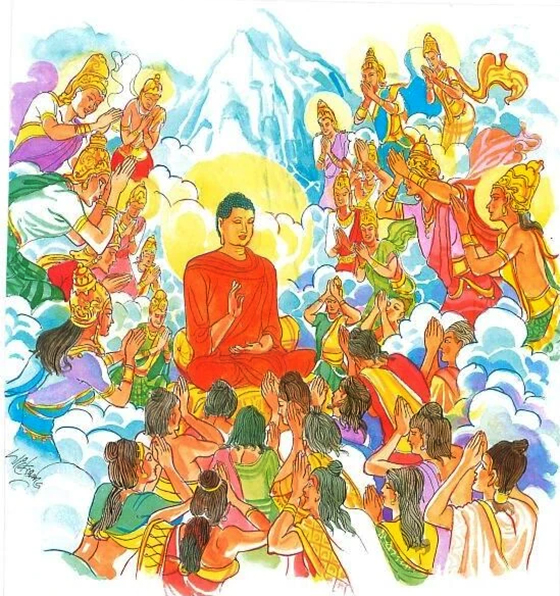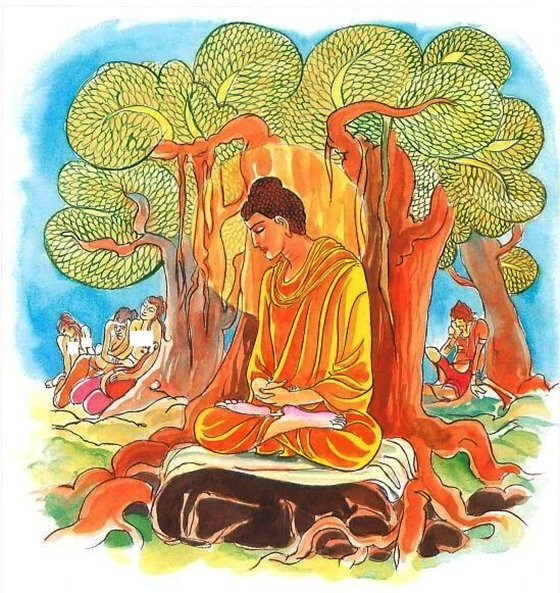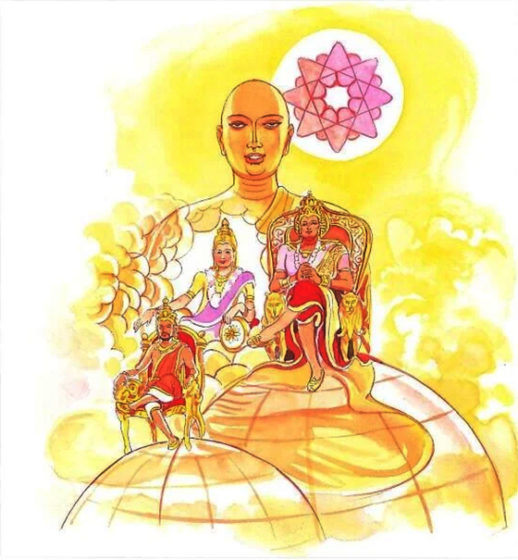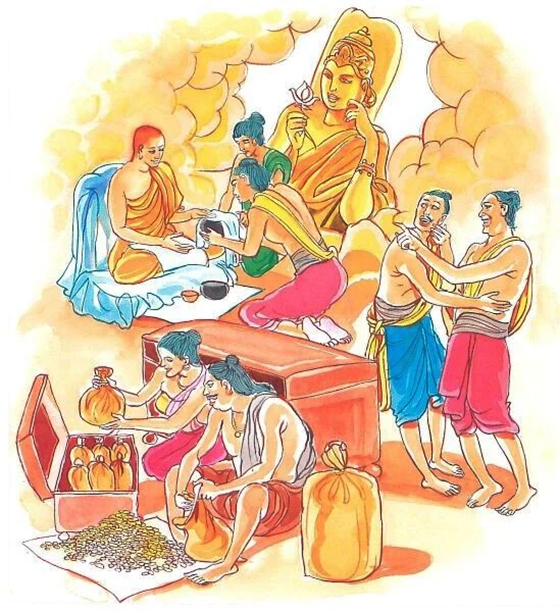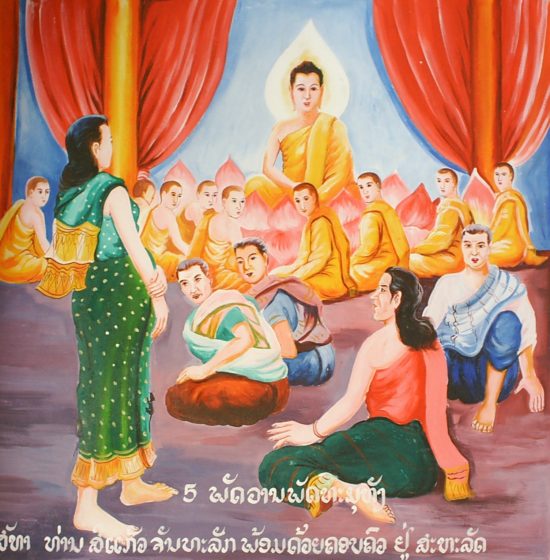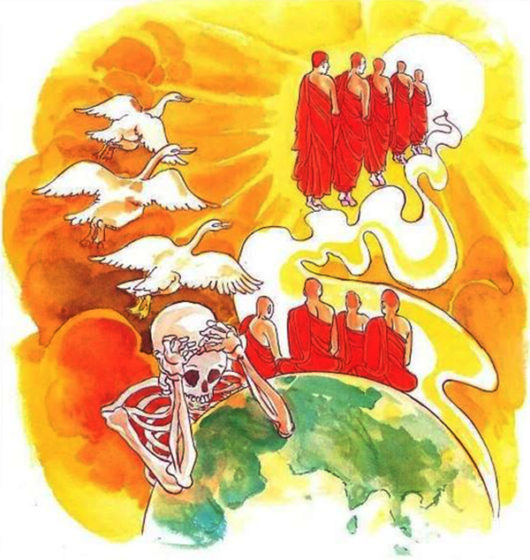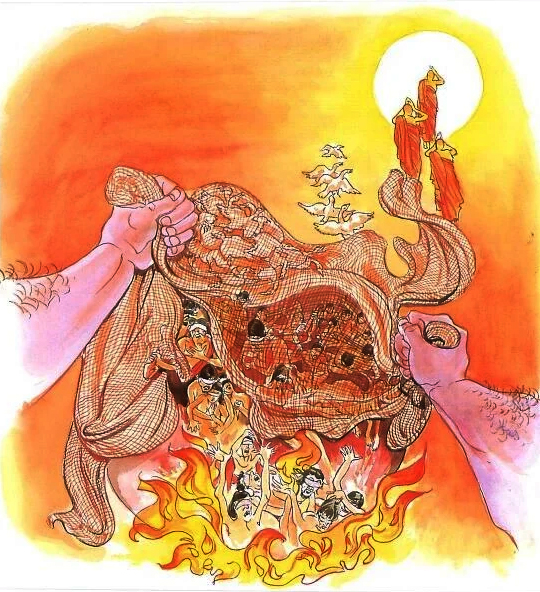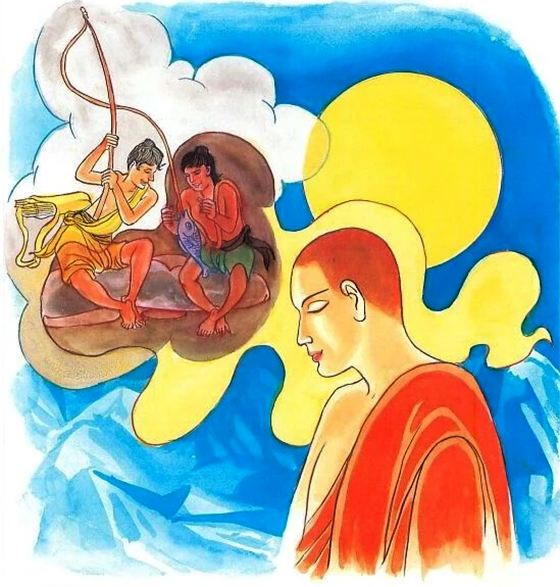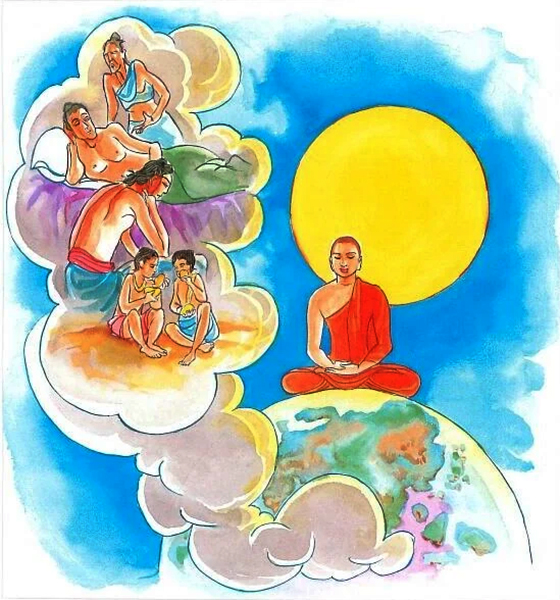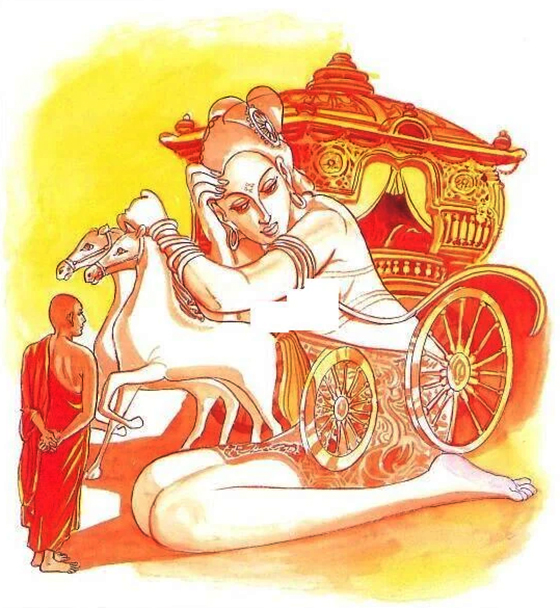The Story of the Buddha’s Return from the Tavatimsa Deva World
Verse 181: The wise who practise jhana concentration and Insight Meditation take delight in the peace of liberation from sensual pleasures and moral defilements. Such wise and mindful ones, who truly comprehend the Four Noble Truths (i.e., Arahats and Buddhas) are held dear also by the devas.
The Story of the Buddha’s Return from the Tavatimsa Deva World
On return from the Tavatimsa deva world, the Buddha uttered Verse (181) of this book at Sankassanagara, in reply to Thera Sariputta’s words of welcome.
On one occasion, while at Savatthi, the Buddha performed the Miracle of the Pairs in answer to the challenge of the ascetics of various sects. After this, the Buddha went to the Tavatimsa deva world; his mother who had been reborn in the Tusita deva world as a deva known as Santusita also came to the Tavatimsa deva world. There the Buddha expounded the Abhidhamma to the devas and the brahmas throughout the three months of the vassa. As a result, Santusita deva attained Sotapatti Fruition; so did numerous other devas and brahmas.
During that period Thera Sariputta spent the vassa at Sankassanagara, thirty yojanas away from Savatthi. During his stay there, as regularly instructed by the Buddha, he taught the Abhidhamma to the five hundred bhikkhus staying with him and covered the whole course by the end of the vassa.
Towards the end of the vassa, Thera Maha Moggalana went to the Tavatimsa deva world to see the Buddha. Then, he was told that the Buddha would return to the human world on the full moon day at the end of the vassa to the place where Thera Sariputta was spending the vassa. Continue reading


